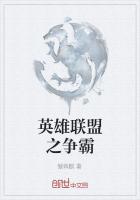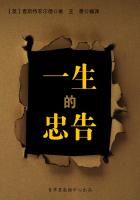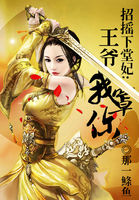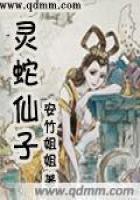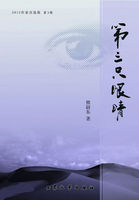To the new employer Memba Sasa maintained an attitude of strict professional loyalty. His personal respect was upheld by the necessity of every man to do his job in the world. Memba Sasa did his. He cleaned the rifles; he saw that everything was in order for the day's march; he was at my elbow all ways with more cartridges and the spare rifle; he trailed and looked conscientiously. In his attitude was the stolidity of the wooden Indian. No action of mine, no joke on the part of his companions, no circumstance in the varying fortunes of the field gained from him the faintest flicker of either approval, disapproval, or interest. When we returned to camp he deposited my water bottle and camera, seized the cleaning implements, and departed to his own campfire. In the field he pointed out game that I did not see, and waited imperturbably the result of my shot.
As I before stated, the result of that shot for the first five days was very apt to be nil. This, at the time, puzzled and grieved me a lot. Occasionally I looked at Memba Sasa to catch some sign of sympathy, disgust, contempt, or-rarely-triumph at a lucky shot. Nothing. He gently but firmly took away my rifle, reloaded it, and handed it back; then waited respectfully for my next move. He knew no English, and I no Swahili.
But as time went on this attitude changed. I was armed with the new Springfield rifle, a weapon with 2,700 feet velocity, and with a marvellously flat trajectory. This commanding advantage, combined with a very long familiarity with firearms, enabled me to do some fairish shooting, after the strangeness of these new conditions had been mastered. Memba Sasa began to take a dawning interest in me as a possible source of pride. We began to develop between us a means of communication. I set myself deliberately to learn his language, and after he had cautiously determined that Ireally meant it, he took the greatest pains-always gravely-to teach me. A more human feeling sprang up between us.
But we had still the final test to undergo-that of danger and the tight corner.
In close quarters the gunbearer has the hardest job in the world.
I have the most profound respect for his absolute courage. Even to a man armed and privileged to shoot and defend himself, a charging lion is an awesome thing, requiring a certain amount of coolness and resolution to face effectively. Think of the gunbearer at his elbow, depending not on himself but on the courage and coolness of another. He cannot do one solitary thing to defend himself. To bolt for the safety of a tree is to beg the question completely, to brand himself as a shenzi forever; to fire a gun in any circumstances is to beg the question also, for the white man must be able to depend absolutely on his second gun in an emergency. Those things are outside consideration, even, of any respectable gunbearer. In addition, he must keep cool. He must see clearly in the thickest excitement; must be ready unobtrusively to pass up the second gun in the position most convenient for immediate use, to seize the other and to perform the finicky task of reloading correctly while some rampageous beast is raising particular thunder a few yards away. All this in absolute dependence on the ability of his bwana to deal with the situation. I can confess very truly that once or twice that little unobtrusive touch of Memba Sasa crouched close to my elbow steadied me with the thought of how little right I-with a rifle in my hand-had to be scared. And the best compliment I ever received I overheard by chance. I had wounded a lion when out by myself, and had returned to camp for a heavier rifle and for Memba Sasa to do the trailing. From my tent I overheard the following conversation between Memba Sasa and the cook:
"The grass is high," said the cook. "Are you not afraid to go after a wounded lion with only one white man?""My one white man is enough," replied Memba Sasa.
It is a quality of courage that I must confess would be quite beyond me-to depend entirely on the other fellow, and not at all on myself. This courage is always remarkable to me, even in the case of the gunbearer who knows all about the man whose heels he follows. But consider that of the gunbearer's first experience with a stranger. The former has no idea of how the white man will act; whether he will get nervous, get actually panicky, lose his shooting ability, and generally mess things up. Nevertheless, he follows his master in, and he stands by. If the hunter fails, the gunbearer will probably die. To me it is rather fine: for he does it, not from the personal affection and loyalty which will carry men far, but from a sheer sense of duty and pride of caste. The quiet pride of the really good men, like Memba Sasa, is easy to understand.
And the records are full of stories of the white man who has not made good: of the coward who bolts, leaving his black man to take the brunt of it, or who sticks but loses his head. Each new employer must be very closely and interestedly scrutinized. In the light of subsequent experience, I can no longer wonder at Memba Sasa's first detached and impersonal attitude.
As time went on, however, and we grew to know each other better, this attitude entirely changed. At first the change consisted merely in dropping the disinterested pose as respects game. For it was a pose. Memba Sasa was most keenly interested in game whenever it was an object of pursuit. It did not matter how common the particular species might be: if we wanted it, Memba Sasa would look upon it with eager ferocity; and if we did not want it, he paid no attention to it at all. When we started in the morning, or in the relaxation of our return at night, I would mention casually a few of the things that might prove acceptable.
"To-morrow we want kongoni for boys' meat, or zebra; and some meat for masters-Tommy, impala, oribi," and Memba Sasa knew as well as I did what we needed to fill out our trophy collection.

